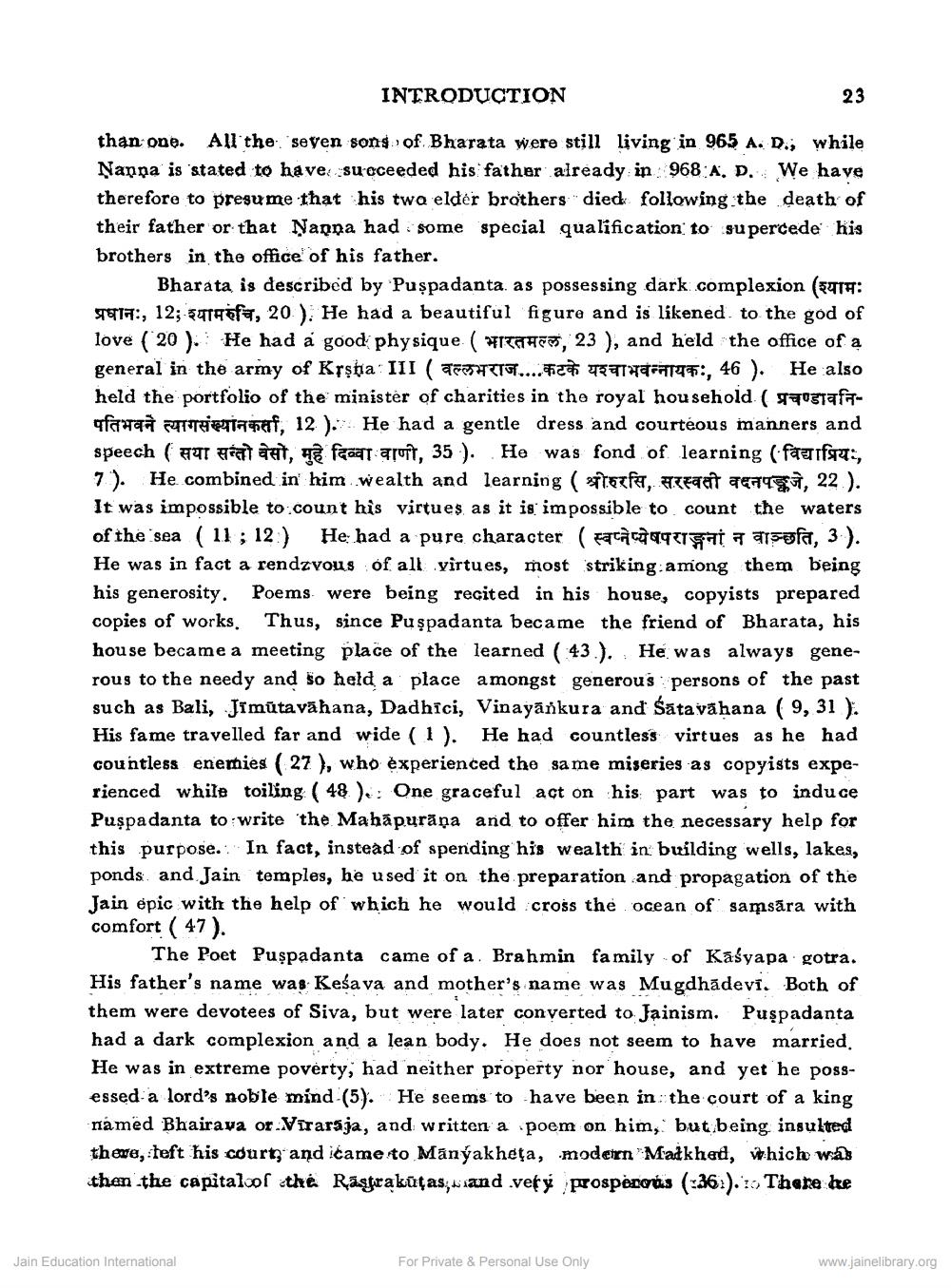________________
INTRODUCTION
23
than one. All the seven sons of Bharata were still living in 965 A. D.; while Nappa is stated to have succeeded his father already in 968 A. D. We have therefore to presume that his two elder brothers dieck following the death of their father or that Nappa had some special qualification to supercede his brothers in the office of his father.
Bharata is described by Puspa danta. as possessing dark complexion (EATH: 919, 12; srafy, 20). He had a beautiful figure and is likened to the god of love ( 20 ). He had a good physique ( 177#, 23), and held the office of a general in the army of Krşba III ( HTTS....FC 1414F:, 46 ). He also held the portfolio of the minister of charities in the royal household ( 49afqua ATTARTInnaf, 12). He had a gentle dress and courteous manners and speech (agataht, feat art, 35). He was fond of learning (factifs, 7). He combined in' him wealth and learning ( Petra, teet T T , 22 ). It was impossible to count his virtues as it is impossible to count the waters of the sea (11; 12) He had a pure character ( FataCOTTISHI 5ofa, 3). He was in fact a rendzvous of all virtues, most striking among them being his generosity. Poems were being recited in his house, copyists prepared copies of works. Thus, since Puşpadanta became the friend of Bharata, his house became a meeting place of the learned ( 43.). He was always generous to the needy and so held a place amongst generous persons of the past such as Bali, Jimütavāhana, Dadhici, Vinayānkura and Säta vähana ( 9, 31 ). His fame travelled far and wide ( 1). He had countless virtues as he had countless enemies ( 27 ), who experienced the same miseries as copyists experienced while toiling ( 48 ): One graceful act on his part was to induce Puspa danta to write the Mahapurāņa and to offer him the necessary help for this purpose. In fact, instead of spending his wealth in building wells, lakes, ponds and Jain temples, he used it on the preparation and propagation of the Jain epic with the help of which he would cross the ocean of samsāra with comfort ( 47 ).
The Poet Puşpadanta came of a. Brahmin family of Kaśyapa gotra. His father's name was Keśava and mother's name was Mugdhadevi. Both of them were devotees of Siva, but were later converted to Jainism. Puşpadanta had a dark complexion and a lean body. He does not seem to have married. He was in extreme poverty, had neither property nor house, and yet he possessed a lord's noble mind (5). He seems to have been in the court of a king named Bhairava or Virarája, and written a poem on him, but being insulted there, teft his court, and ičame to Mányakheţa, modern "Madkhed, which was then the capital of the Rasprakūtas, uand very prospenos (:36). ':. Theke ke
Jain Education International
For Private & Personal Use Only
www.jainelibrary.org




